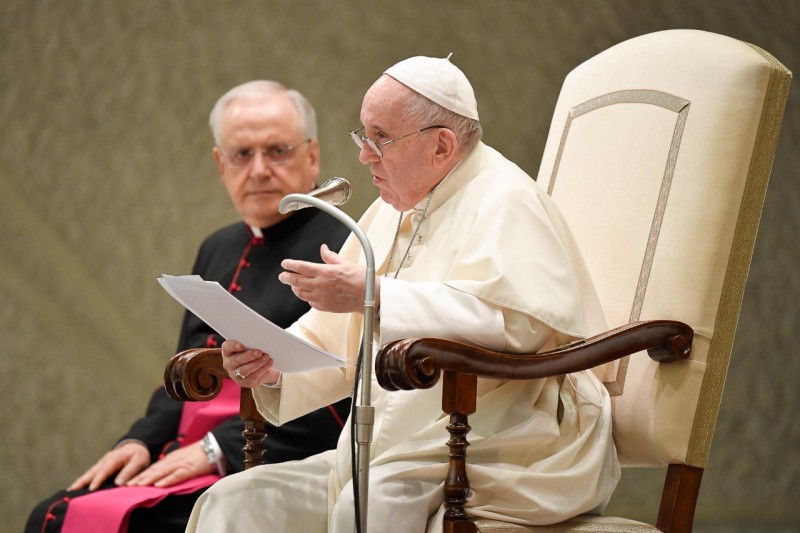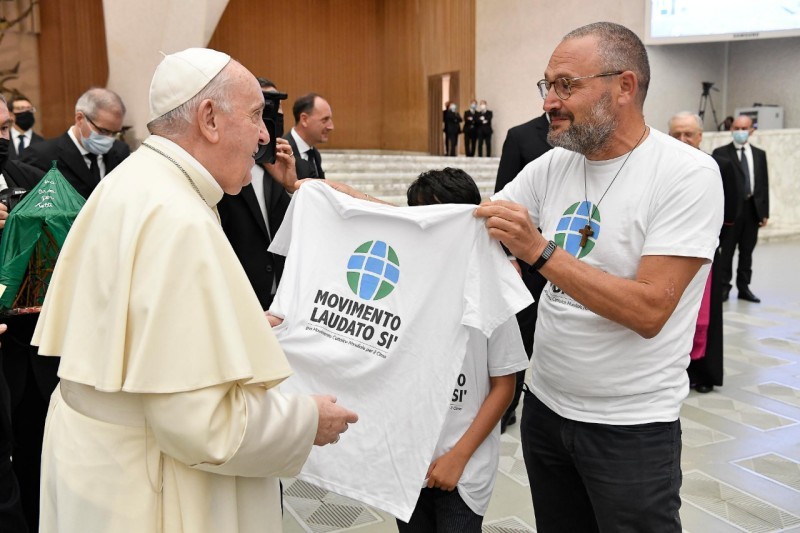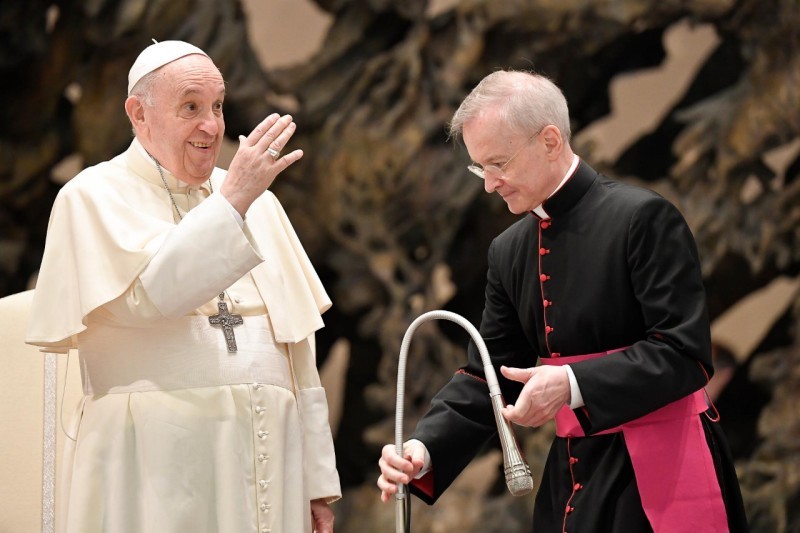
Pope Francis asked Catholics to reflect on how they live the faith, and to strive to put Christ at the center of their actions to avoid falling into mere formalities during Wednesday’s general audience in the Vatican.
“Does the love of Christ crucified and risen again remain at the center of our daily life as the wellspring of salvation, or are we content with a few religious formalities to salve our consciences?” the pope asked in his weekly message Sept. 1.
Speaking in the Vatican’s Paul VI Hall, he continued: “Are we attached to the precious treasure, to the beauty of the newness of Christ, or do we prefer something that attracts us momentarily but then leaves us empty inside?”
“The ephemeral often knocks on the door of our days, but it is a sad illusion, which makes us fall into superficiality and prevents us from discerning what is really worth living for,” he added.
Pope Francis’ weekly catechesis centered on a passage from St. Paul’s Epistle to the Galatians, in which the Apostle says: “O stupid Galatians! Who has bewitched you, before whose eyes Jesus Christ was publicly portrayed as crucified? I want to learn only this from you: did you receive the Spirit from works of the law, or from faith in what you heard?”
The pope began his message by underlining that the Scripture passage and its message comes from St. Paul, not from him.
“This is not something new, this explanation, not something of mine: what we are studying is what St. Paul says in a very serious conflict with the Galatians,” he emphasized.
“This is simply a catechesis on the Word of God expressed in the Letter of St. Paul to the Galatians; nothing else.”

He noted that St. Paul is “not courteous” with the language he uses to address the Galatians. In other letters, Paul calls them “brothers” or “dear friends,” but here is angry, the pope explained, pointing out that he calls them “foolish,” which is also sometimes translated as “stupid.”
Paul “does so not because they are not intelligent, but because, almost without realizing it, they risk losing the faith in Christ that they have received with so much enthusiasm,” Pope Francis said. “They are foolish because they are unaware that the danger is that of losing the valuable treasure, the beauty, of the newness of Christ” and they may miss “the possibility of attaining a new, hitherto unhoped-for freedom.”
St. Paul is “shaking up their consciences: this is why it is so forceful,” he stated. “He takes them back to the starting point of the Christian vocation.”
According to Francis, “Paul’s intention is to compel Christians to realize what is at stake, so they do not allow themselves to be enchanted by the voice of the sirens who want to lead them to a religiosity based solely on the scrupulous observance of precepts.”
Even when we are tempted to turn to superficiality, however, God still bestows his gifts on us, he said.

“Even today, people come and harangue us, saying, ‘No, holiness is in these precepts, in these things, you must do this and that,’ and propose an inflexible religiosity, the inflexibility that takes away from us that freedom in the Spirit that Christ’s redemption gives us,” the pope continued.
He warned Catholics to “beware of the rigidity they propose to you: be careful.” Inflexibility, he said, does not come from the Spirit of God.
Francis pointed to St. Paul’s letter as a good source to help people to not listen to “these somewhat fundamentalist proposals that set us back in our spiritual life.”
“Despite all the difficulties we may pose to His action, God does not abandon us but rather abides with us in His merciful love,” the pope concluded.
“He is like that father who went up onto the terrace every day to see if his son was returning: the love of the Father never tires of us. Let us ask for the wisdom always to be aware of this reality, and to turn away the fundamentalists who propose to us a life of artificial asceticism, far removed from the resurrection of Christ. Asceticism is necessary, but wise asceticism, not artificial.”
Source: Licas Philippines
0 Comments